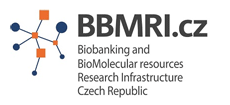At the beginning of this millennium, a new era of human research started. The first human genome, followed by the first individual human genomes, were published. This development led to the rise of genomics, a scientific field with a holistic approach, studying the complete genetic information of an organism as a whole. The rapid advancement of technologies for massive parallel sequencing of nucleic acids has enabled us to run projects aimed not only at obtaining a whole genome sequence, but also focusing on its interpretation. One of the first such projects was The 1000 Genomes Project, which represented a breakthrough, and many international and local projects have followed up on it (gnomAD, Genomics England, deCODE, Genome Russia, Genome Asia 100K etc.). The data produced by these projects clearly demonstrate the need to obtain genomic data on specific populations to allow them to be correctly interpreted with respect to natural inter-individual variability. However, the current genomic data of Central and Eastern European populations (including the nationalities living in the Czech Republic) are only poorly represented in the publicly available databases. This makes it very difficult for Czech geneticists and researchers to interpret variants found in the whole genome sequence of local individuals. This can for example pose a serious issue in case of genetic diagnostics, when a non-pathogenic variant can be misinterpreted as pathogenic, because it is not commonly found in international databases, and the pathogenic variant could be overlooked. Therefore, we aim to map genetic variants in the local populations living in the Czech Republic thoroughly. Additionally, our goal is to compare them with other populations. We also plan to determine the presence of pathogenic alleles associated with various diseases in the Czech population in order to find out more common alleles and define the diseases with a high predisposition rate. This information will be useful not only for genetic research but mainly for diagnostics of numerous diseases with a genetic background including oncological, cardiological, neurological, metabolic and many others.



